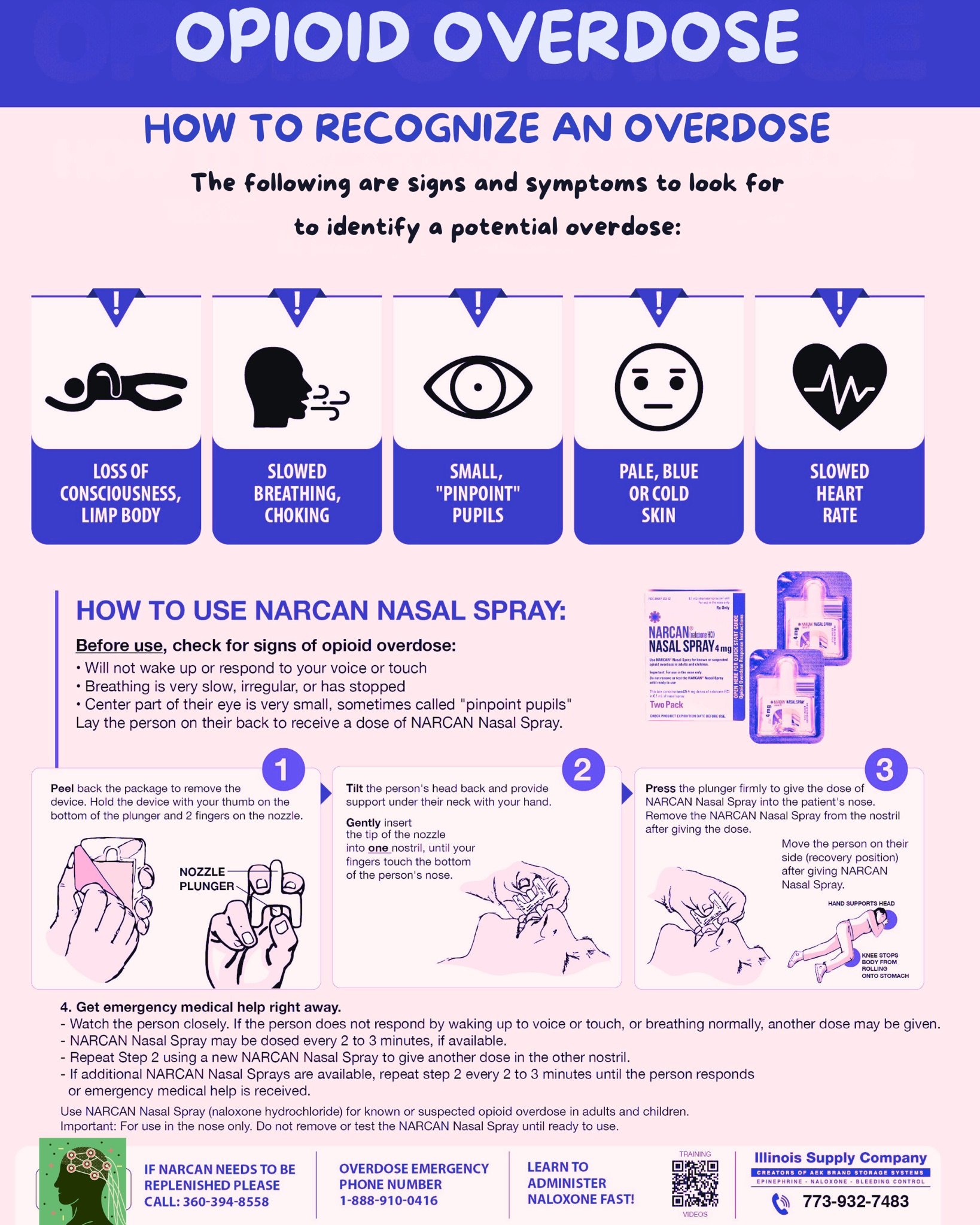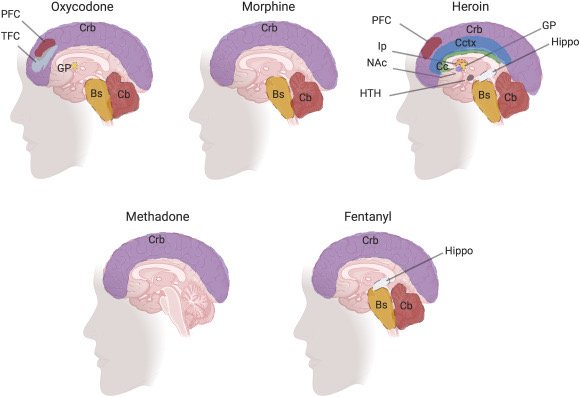
Identifying an overdose & using Narcan or Naloxone.
- American Medical Association
How to administer Naloxone
Opioids. Prescribed or illicit drugs can be harmful and deadly. Recognize how it can alter your mind and your life. Know the signs, side effects and safety of Opioid and Overdose .
Commonly prescribed opioids include:
Morphine, codeine, methadone, oxycodone (also known as OxyContin®, Percodan®, Percocet®)
Hydrocodone (also known as Vicodin®, Lortab®, Norco®)
Hydromorphone (also known as Dilaudid®, Exalgo®)
Buprenorphine (also known as Subutex®, Suboxone®)
Fentanyl (also known as Duragesic® or Fentora®) is a synthetic drug many times more powerful than other opioids and is approved to treat severe pain such as from advanced cancer.
Common illicit opioids include:
Heroin (illegal opioid)
Fentanyl (a synthetic opioid that is up to 50 times stronger than heroin and 100 times stronger than morphine)
Side effects:
Doctors prescribe opioids for pain, but they can have serious side effects even when taken as directed including:
Tolerance-over time, you might need to take more for the same pain relief
Physical dependence-you have withdrawal symptoms when you stop taking the medication
Increased pain sensitivity
Constipation
Nausea, vomiting and dry mouth
Sleepiness and dizziness
Confusion
Depression
Low testosterone that can result in lower sex drive, energy, and strength
Itching and sweating
Overdose leading to death
Opioid Safety
Opioid use, even under a doctor’s supervision, requires constant care and awareness. While they can be used to treat moderate-to-severe pain, it’s important to know opioid prescriptions can also be risky when it comes to addiction.
Anyone who takes prescription opioids can become addicted to them. Side effects of opioids can also be impacted, or made worse, by other prescription medications like benzodiazepines. Benzodiazepines are central nervous system depressants used to sedate, induce sleep, prevent seizures, and relieve anxiety. Examples include alprazolam (Xanax®), diazepam (Valium®), and lorazepam (Ativan®). Avoid taking benzodiazepines while taking prescription opioids whenever possible.
Naloxone is a medicine that rapidly reverses an opioid overdose. It is an opioid antagonist. A common form of Naloxone, NARCAN®, can be purchased at most local pharmacies. NARCAN® 4 mg Nasal Spray is available over-the-counter. In addition, free NARCAN® is now available for agencies, businesses and organizationseard drugs can affect your life - but how?
Drugs mess with your brain and changes how you think.
Drugs break down our body, some drugs can kill you the first time you use them.
Your future won’t be your focus. You may find yourself stuck without plans for the future.
You may forget about your family. You could isolate yourself so much that you can’t reach out to your family when you need them.
Remember you have a choice, always. You can enjoy a life without drugs. If you are worried about drug use for you or a friend, you can get help.
Drugs can mess with your mind and your body. They can also mess up your friendships, your family, and the planet. Make the choice to live a drug free life.
Learn to use narcan Naloxone in case of an overdose with a loved one, a friend or even a stranger. Learn how to use it in case of an emergency.🆘. WHO CAN - YOU CAN - SAVE A LIFE TODAY WITH NARCAN.
National Library of Medicine
How Naloxone Saves Lives.
In case of Emergency, if someone is overdosing and needs help, when in doubt
🆘Call 911 for: life-threatening situations that require dispatch or for emergency medical services, fire, and police.
Call 988 for: Behavioral health crisis and services.
Do not dial 911 for a non-emergency or non life-threatening situation(s).
You can save a life! Make it count.
Narcan can be a lifesaving medication that can reverse an opioid overdose and how you can get it for free at Center Point DAAC. Opiods are a class of drugs that includes prescription painkillers, heroin, and fentanyl. They can relieve pain, but they can also cause euphoria, respiratory depression and drowsiness. When someone takes too much of an opioid, they can stop breathing and die. This is called an opioid overdose.
TED ED What causes Opioid Addiction






